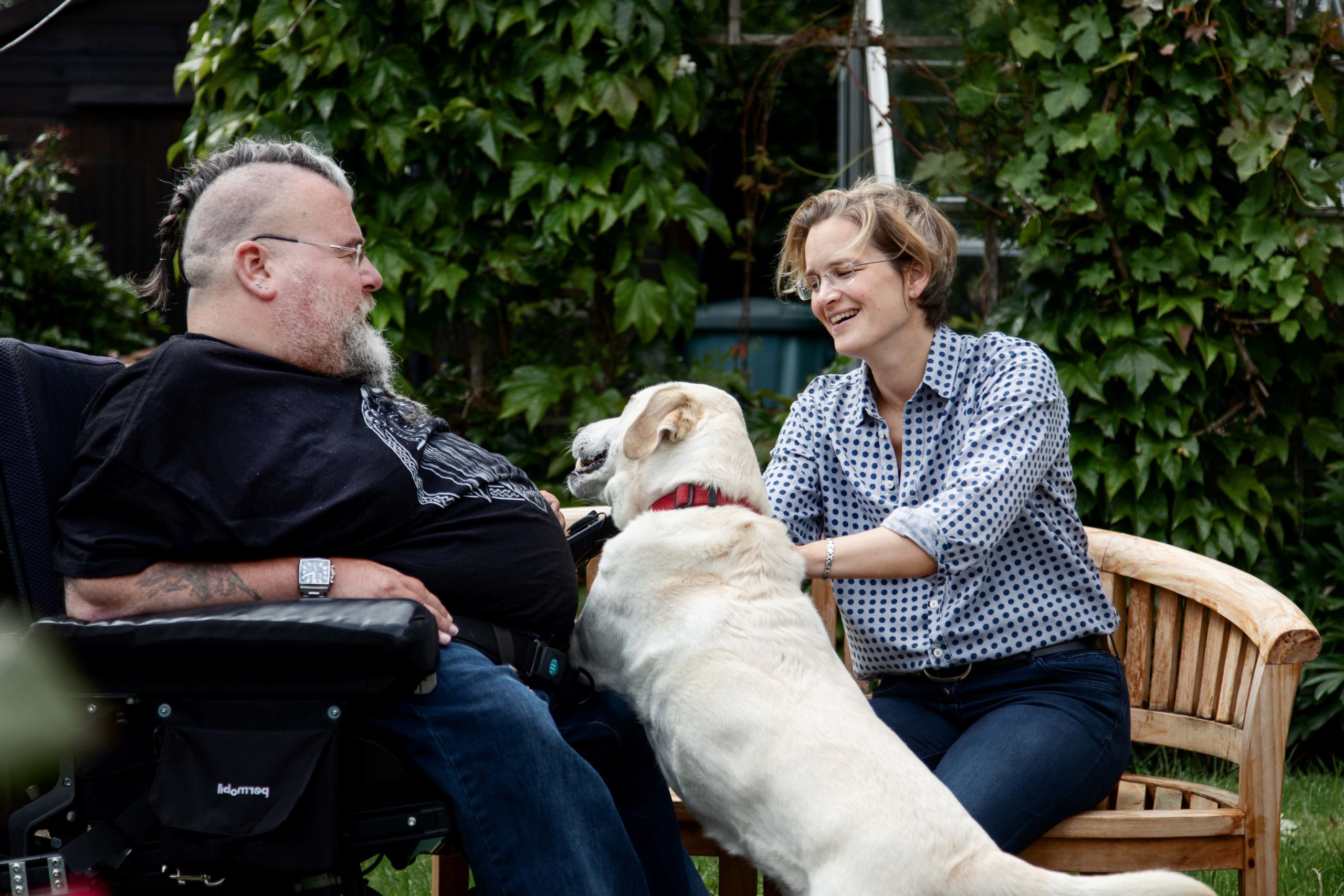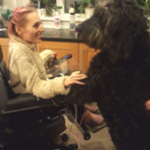Adults, Life in General

Adults, Life in General
Page last checked: August 2025
Are you:
- reviewing your current home and thinking about making adaptions?
- moving away from home for the first time?
- looking for a new place to live?
We hope this checklist of things to think about and how to get the support you need will be useful.
If you are looking for new options or have questions on these topics, our information and links to organisations may be useful.
Listen to, watch and read about the experiences of parents living with SMA.
Toby (SMA UK Trustee) and Andi (from TreatSMA) talk about ‘Hitting their Forties’ . They look back on getting kicked out of university as well as reflecting on mental health, treatment, work, healthcare, support and more…
You may also find other virtual groups and networks on Facebook, WhatsApp and Instagram. Some are listed on our Other Ways to Connect > page.
You can listen to, watch or read what young people, adults and others have to say in Connect with the Community >
Assistance dogs are popular with many adults and families in the SMA Community. An assistance dog could help you with practical tasks such as:
- picking up dropped items like your mobile, or remote control
- opening and closing doors
- helping with dressing and undressing
- helping with physiotherapy routines
- pressing the button at a pedestrian crossing
- reaching up to shop counters.
As with many dogs, it will also provide loyal and unconditional friendship and company.
Dogs are also a great ice breaker and way of meeting and talking to people. Registered assistance dogs should be allowed to go with their owner into many public places, such as shops, restaurants and to travel on public transport.
There is however a ‘but’. An assistance dog is a serious commitment that needs a lot of thought and planning.
If you are interested, there are several organisations that can give advice. Some train and provide their own dogs. Others provide training for people who already have a pet dog. Each organisation has its own eligibility criteria, application process and training schemes. They can also give information and advice about the responsibilities of dog owners:
- Assistance Dogs UK >
- Dog AID >
- Dogs for Good > (formerly Dogs for the Disabled)
- Support Dogs >
Animal Companions
You may decide that you don’t want an assistance dog. A well trained family dog can be a great addition and companion:
Sunny Every Day
In March 2018, Martyn and his fiancée, Kasia, got their dog Sunny. Find out why they decided to go for it and what Sunny means to them.
 Marni – with Dylan the Goldendoodle & Buttercup the Chihuahua
Marni – with Dylan the Goldendoodle & Buttercup the Chihuahua
Marni, who has SMA Type 2, shares what Dylan and Buttercup mean to her.
 Ross & Ralph
Ross & Ralph
Ross, who has SMA Type 2, introduces his golden cockapoo called Ralph!
Links to relevant sources of information, advice and support are given in the different sections of Living With SMA.
Sometimes you may need extra advice, support or legal advice. The website links below may be useful. We may be able to find other sources of support depending on where you live and your individual circumstances: contact the Support Team >.
Advice & Advocacy Services:
An advocate is someone who will:
- assist you to find information you need
- support you to express your views and wishes
- support you to stand up for your rights
- always to support your choices.
Some advocates are in paid roles, others are volunteers.
ACAS > (Advisory, Conciliation, and Arbitration Service): advice and guidance on a range of employment related subjects for both employers and employees.
Advicelocal > information relating to: welfare benefits and tax credits; council tax, including exemptions and discounts; debt and money advice; housing and homelessness; employment and work issues; disability and social care; asylum and immigration. Search by postcode and topic for links to information for your area, including details of independent advice organisations.
Citizens Advice (CA) > online information and advice on a range of issues including benefits, work, money, housing and the legal system.
Voiceability – NHS Complaints Advocacy > a free and independent service which supports patients in complaining about their NHS care.
Legal Advice and Services
These provide information about legal aid and how to find a solicitor:
- England and Wales: Civil Legal Advice >
- Scotland: Scottish Legal Aid Board >
- Northern Ireland: Department of Justice >
Law Centres Network > provide services for people who cannot afford a lawyer. Search to see if there is one local to you. They variously specialise in social welfare law, covering issues such as Welfare rights, Disability rights, Community care and more. All offer face-to-face advice to local residents and some run a phone advice line.
